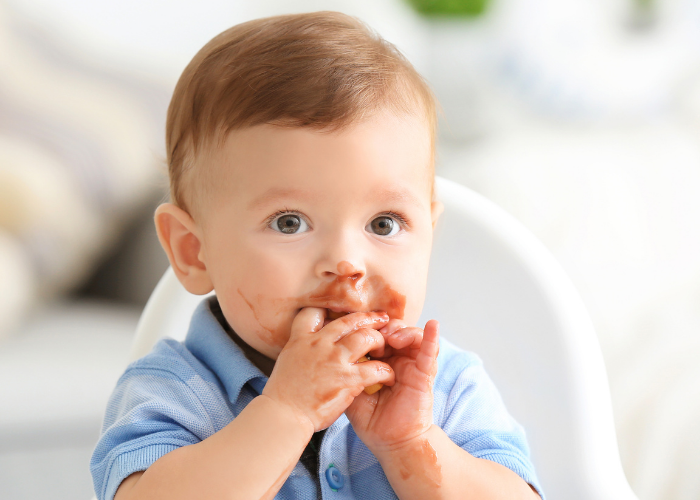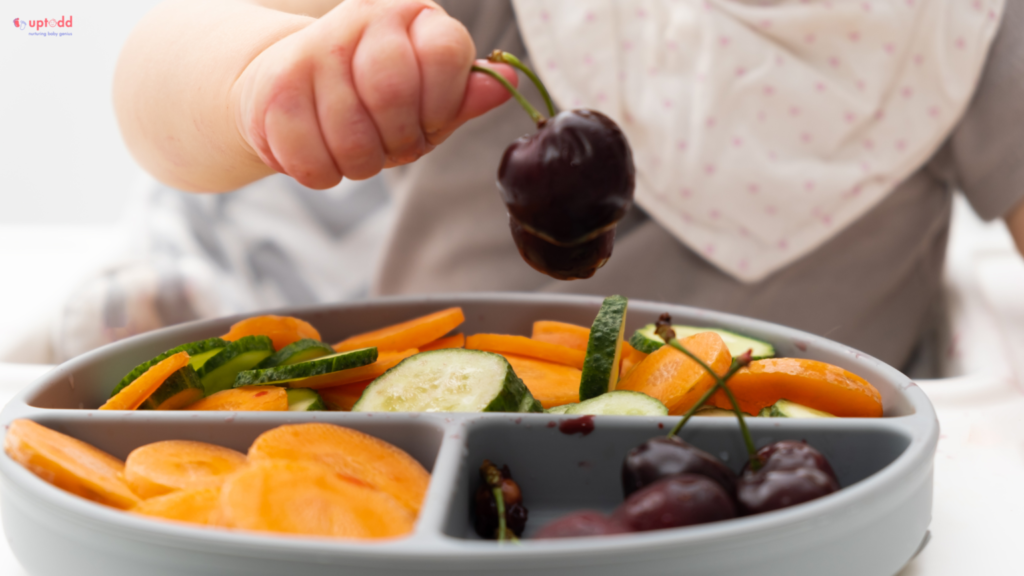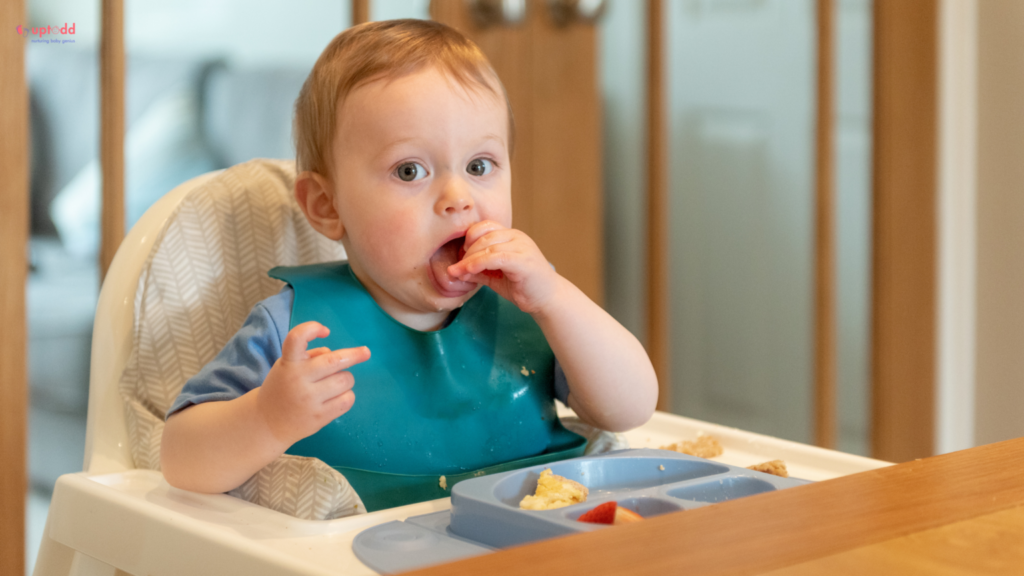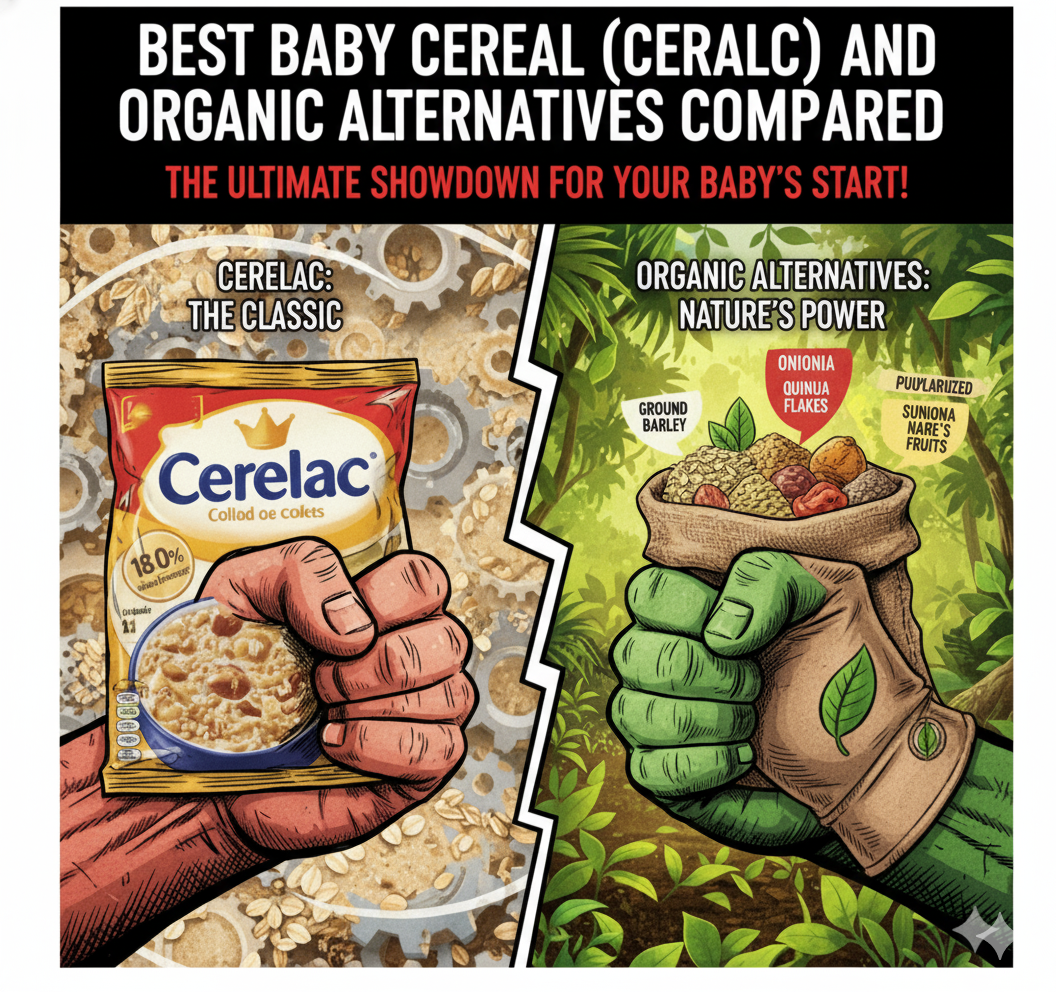
The Benefits of Self-Feeding for babies
Topic
The Benefits of Self-Feeding for babies
May start as early as
6 Months
─────────
Related Skills
Remember that first smile of your little one when you made a goofy face? Or that surprising face when you played peekaboo? And those adorable, wobbly first steps that filled your heart with overwhelming pride? Every achievement feels like a precious reminder of how quickly they’re growing. Among these special moments, one of the most memorable experiences is when your baby starts feeding themselves. Watching those tiny, chubby fingers reach for food and explore new tastes! The self feeding milestone isn’t just about filling their tummies – it’s a huge step in building their confidence, independence, and motor skills.
In this blog, we will cover
- How does self-feeding help with development?
- What are the stages of self-feeding?
- Tips for encouraging self-feeding
- Importance of a consistent mealtime routine for self-feeding?
Benefits of self feeding
Self-feeding is more than just a mealtime routine; it’s a playful and effective way for your baby to develop a variety of skills. Here’s how it works:

Developing Fine Motor Skills
When your baby starts feeding themselves, they’re practicing essential skills like grasping, pinching, and coordinating hand-to-mouth movements. Picking up different types of food, some slippery like a banana, and some crunchy like veggies, helps your baby learn to control their grip and apply the right amount of pressure. This grip and control not only builds their fine motor skills as they try to eat using their fingers but also teaches exploration. These moments also strengthen the small muscles in their hands and fingers, leading to better finger dexterity and control.
Enhancing Hand-Eye Coordination
When your baby reaches for a piece of food and successfully brings it to their mouth, it’s like a mini victory as parents! Through this action, your baby is practicing the coordination between their hands and eyes. This skill is super important for everything – from playing sports to writing those beautiful words at school. And self-feeding helps develop this!
Building Independence and Confidence
Allowing your baby to feed themselves isn’t just about giving them control over their mealtime – but it’s about building independence and confidence. In this way, they learn to trust their abilities and become more willing to take on new challenges. It also helps them understand their own hunger and fullness cues and develop a healthy relationship with food. Self-feeding leads to food acceptance during toddlerhood. Each of their messy bites is a step toward building self-reliance and boosting self-esteem.
Sensory Exploration
Mealtime is a multi-sensory experience for babies. When your baby picks up the food to feed themselves, they are not just eating but are exploring different textures, tastes, and smells. This mealtime adventure helps develop their sensory systems. This sensory exploration is beneficial for their cognitive development, sparking their curiosity and encouraging learning. In the beginning, your baby will be more into playing with the food instead of eating it, and that’s okay! It’s all part of the process!
References from Baby-Led Weaning: A New Frontier?
Baby-Led Weaning: The Evidence to Date
Stages of self-feeding
- The palmer grasp

The Palmer grasp is when a baby uses the whole hand to grasp an object, typically by wrapping their fingers around it. Around 6-8 months old, your baby will start using the palmer grasp during mealtimes, using their whole hands to pick food and eat. Sure, it will be a bit messy but it is great for developing independence during mealtimes. As babies get better at this, they’ll slowly develop the pincer grasp, which allows for more precise movements such as picking up smaller objects.
- The pincer grasp

Babies develop the pincer grasp between 9 to 12 months. The pincer grasp is a developmental milestone where your baby learns to pinch an object or a piece of food using their thumb and index finger. This skill might seem simple, but it marks a significant step in your baby’s ability to feed themselves and become more independent. Suddenly, picking up those tiny bits of food becomes much easier for your little one!
References from Feeding Developmental Milestones
Tips to encourage self feeding
Introducing self-feeding to your baby can be a messy task, but it is also super rewarding. Let us provide you with some tips to make the experience enjoyable and beneficial for both you and your baby:

- Start with easy-to-grasp finger foods such as soft banana slices and steamed vegetables. Offer foods that are safe and easy for your baby’s tiny hands to pick up. Introduce different textures to help your baby develop their sensory skills. Mix soft, crunchy, and slippery foods to keep them engaged and challenged.
References from 9 Easy Tips to Encourage Self-Feeding for Babies
Is mealtime routine beneficial?
The answer is yes! Creating a consistent mealtime routine for your baby can make a big difference. It helps babies understand when to expect food, reducing fussiness and making them more willing to join in. Regular meal and snack times provide structure. This makes it easier for babies to develop healthy eating habits. Try to avoid distractions like television or toys during mealtimes. This helps your baby focus on eating and learn that mealtime is an important, dedicated activity.
Find 6 month baby food plan and strategy to introduce solids
Check out brain food for 6 month old
Final Thoughts
Self-feeding is more than just a milestone. It’s a wonderful way to support your baby’s overall development. It is a significant step towards building their confidence and independence. It is important to provide your little one plenty of opportunities to explore a variety of foods and eat them on their own. Embrace the mess, enjoy the journey, and watch your baby thrive as they take these early steps towards independence! Capture the cute little messy moment and save it in the folders of your memory!






